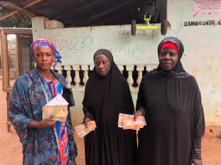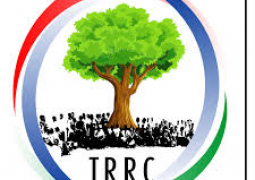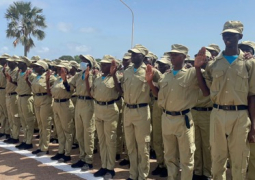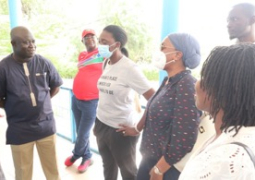
The project, supported by the World Bank and the Gambia government, is implemented by the National Nutrition Agency, Department of Community Development and Directorate of Social Welfare to alleviate poverty at poor households in the rural areas.
Arabiatou Sambou, Community Development Officer, told this medium that Foni Bintang Karanai happens to be a pilot zone. She said that after the PMP, they realised that the district is among the three districts that are the most vulnerable.
‘Looking at the livelihood of people living in Foni and supporting them with such an initiative is a good move,’ she said, adding that ‘the Social and Behavioral Change Communication (SBCC) that beneficiaries receive is the most important thing.”
“It enables them to know how to use the money wisely and be able to sustain themselves after the project,” she said. “This is the 11th time they have received the cash, and there is an expansion for them, meaning their cash transfer will last for 36 months.”
Mrs Sambou concluded that with proper management and the skills acquired, the money would help the beneficiaries in changing their lives and in building resilience at their family level.
Dwelling on the management of the payment data, Siaka Suwareh, NaNA IT officer, said his institution managed the data that was given to them by the National Social Protection Secretariat, adding that the data was collected by GBoS.
He said the challenges were not much, although they had some difficulties during the enrollment process, which included wrong spelling of some names; absenteeism during the enrollment process and unavailability of the principal and procreator during the process.
“It's important to have data before implementing any project because the data help, guide and make our work easier,” he said. “In Foni, we are targeting about 755 beneficiaries but we also did a rollout which was about 1,516. The overall beneficiaries in the Fonis are more than 2,000 households.”
Sira Gibba, a beneficiary, expressed gratitude and emphasised that the cash transfer is accompanied by education on how to manage money, live harmoniously, respect the right of children, support pregnant women, and more.
She said that money helped them solve essential needs of life, such as feeding and petty business investment to sustain themselves from the proceeds.
“With the money gained, I bought a goat and sheep that could generate income in the future,” he added.
Tida Sanyang, a beneficiary from Bagilo, also said that the project had uplifted them from poverty.
The project, she added, helps them to provide food for their children. Mrs Sanyang thanked the donors for such a great gesture while looking forward to seeing many of its kind.





